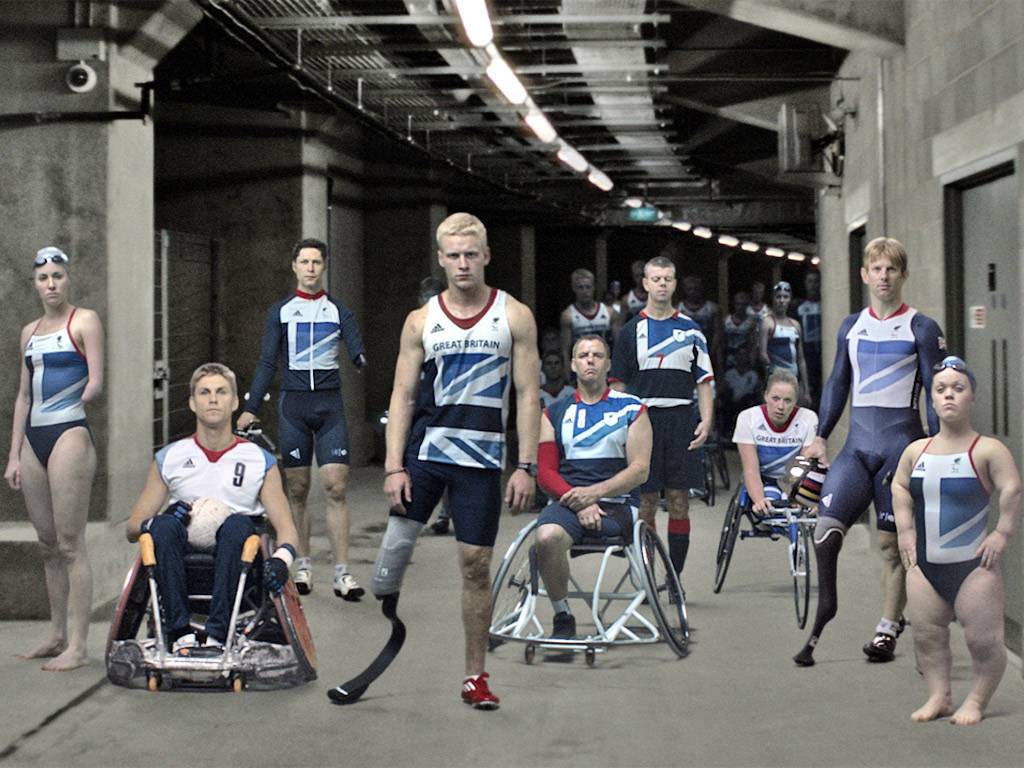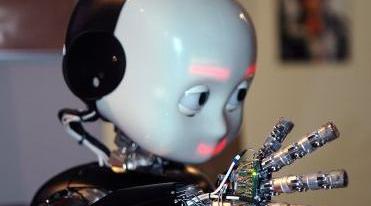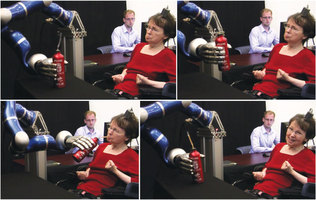The future is a difficult thing to grasp, and not just because we can’t see it. Bringing innovation to life requires imagination, resourcefulness, the sort of limitless creative ambition we today associate mainly with science fiction writers.
Search Results
You searched for: Robots
The Raspberry Pi, a kind of hobbyist-kit computer, is poised to increase hardware and software skills for kids and adults in both developed and developing countries.
The line between man and machine is blurring to the extent that what previously seemed in the realm of science fiction is now science fact: humans with “super-abilities” who run faster, throw further, and hit harder than anyone else in the world.
A rash of new companies have sprung up to meet the demand for transportation of crew and cargo to orbit and to the International Space Station left by NASA’s cancelling of the shuttle program.
We already know that supercomputers, sophisticated algorithms and mathematical models are at the very heart of the modern financial markets. Now, with l’affaire Knight Capital we’ve just seen how robot traders and rogue […]
A decade ago, Chris Hedges titled his analysis of the addictive power of war War Is a Force That Gives Us Meaning. If war truly is a force that gives […]
Jaron Lanier: if we don’t learn to acknowledge that real people are actually creating the value online, we’re never going to learn how to create the information economy that can really create employment and self-determination.
Researchers at separate universities are creating kitchens that use technology to “walk” cooks through the steps of meal preparation.
A newly-formed group at NASA hopes to build on the success of the Mars Curiosity rover by creating workable plans for future exploration of the planet.
Would you eat a thick, juicy steak? What if it were grown in a lab and printed using new 3D printing techniques originally developed to grow regenerative tissue for medical purposes? Thanks […]
Before the FDA starts meddling with the legality of bio-implants, rogue hackers are pushing the man-machine boundary in an attempt to augment and improve our natural senses.
By Zane Friedkin (guest blogger) The drone war being waged by the Obama administration in Pakistan, Afghanistan, Yemen, Libya, and Somalia has elicited more media attention than is typical of […]
I use the term neo-patriarchy a lot, to describe the worldview that underlies many of the skirmishes in the “war on women.” The important thing is to take it seriously […]
I use the term neo-patriarchy a lot, to describe the worldview that underlies many of the skirmishes in the “war on women.” The important thing is to take it seriously […]
I use the term neo-patriarchy a lot, to describe the worldview that underlies many of the skirmishes in the “war on women.” The important thing is to take it seriously […]
I use the term neo-patriarchy a lot, to describe the worldview that underlies many of the skirmishes in the “war on women.” The important thing is to take it seriously […]
The Turing Test, which is based on language processing, is seen by many as imperfect. That is why a group of scientists at the University of Exeter in England have proposed a “Turing Test 2.0.”
Researchers at an English university have created a robot that learns language like an infant. The achievement represents a major advance in the creation of artificial intelligence.
A new tactile sensor developed at the University of Southern California is more sensitive to the touch than an actual human fingertip. The technology will help advance prostheses and AI.
A young Russian entrepreneur is courting the world’s richest men and women to fund his plans to make humans immortal. Called the 2045 Initiative, the quicker funding is found, the better.
The introduction of tablets to the kindergarten crowd sounds like a phenomenal opportunity to assert the leading role of American innovation.
Harvard scientists have created a nanomaterial which regulates itself by adjusting to a host external stimuli like temperature, pH, pressure, and the presence or absence of certain chemicals.
DARPA’s 100-Year Starship Initiative aims to make human space travel beyond our solar system possible within 100 years.
The redoubtable fashion critic Simon Doonan, author of Gay Men Don’t Get Fat,observes that a unique appearance is a political liability in the United States. Mitt Romney, he observes, is “so handsome that he runs the risk of looking too “plastic…like a TV anchor.”
Scientists have hoped that one day people with severe forms of paralysis could use brain-computer interfaces to perform tasks to better their lives. That day has now come.
Neil DeGrasse Tyson, who ought to know, says that the future won’t be anything like The Terminator. “I live in the real world, and in the real world that’s simply […]
Competition is driving companies to automate more and more middle-class jobs. Sectors of the economy like legal research and nursing are being “hallowed out” says an MIT economist.
A team of researchers at Brown University have taught a paralyzed woman to move a robotic arm with her mind, enabling her to take an independent sip of coffee for the first time in 15 years.
A new robotic sailboat aims to set navigation records while collecting data on marine life. In the future, such boats could be used for search and rescue operations and tsunami detection.
David Eagleman says he grew up dreaming of having a robot companion like C-3PO, but all he got was the Roomba vacuum cleaner. Why has the field of artificial intelligence progressed so slowly?





























